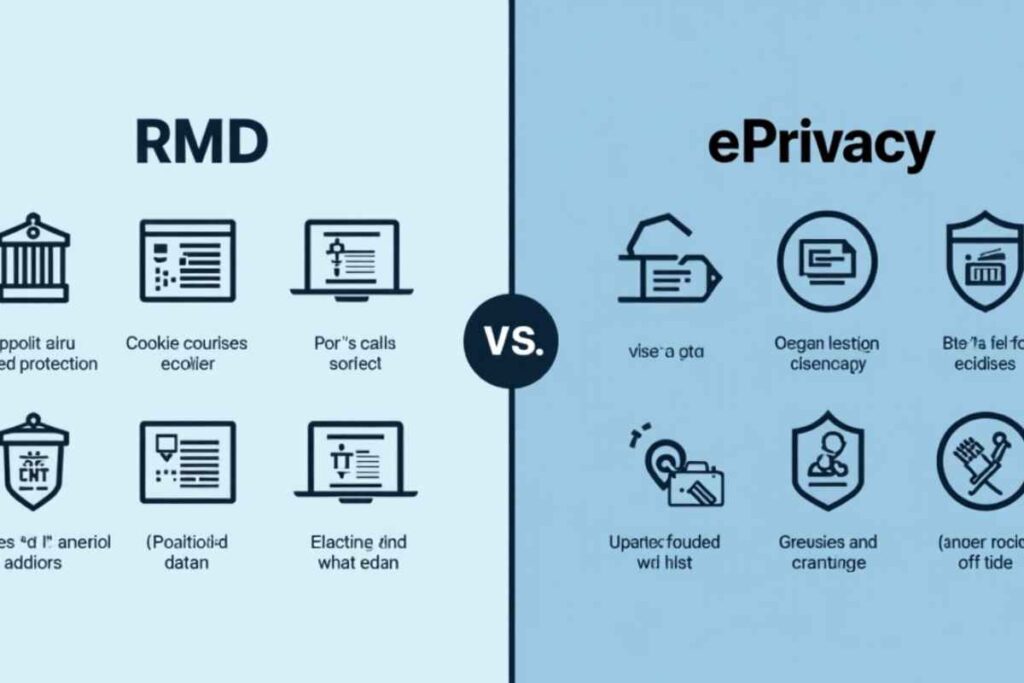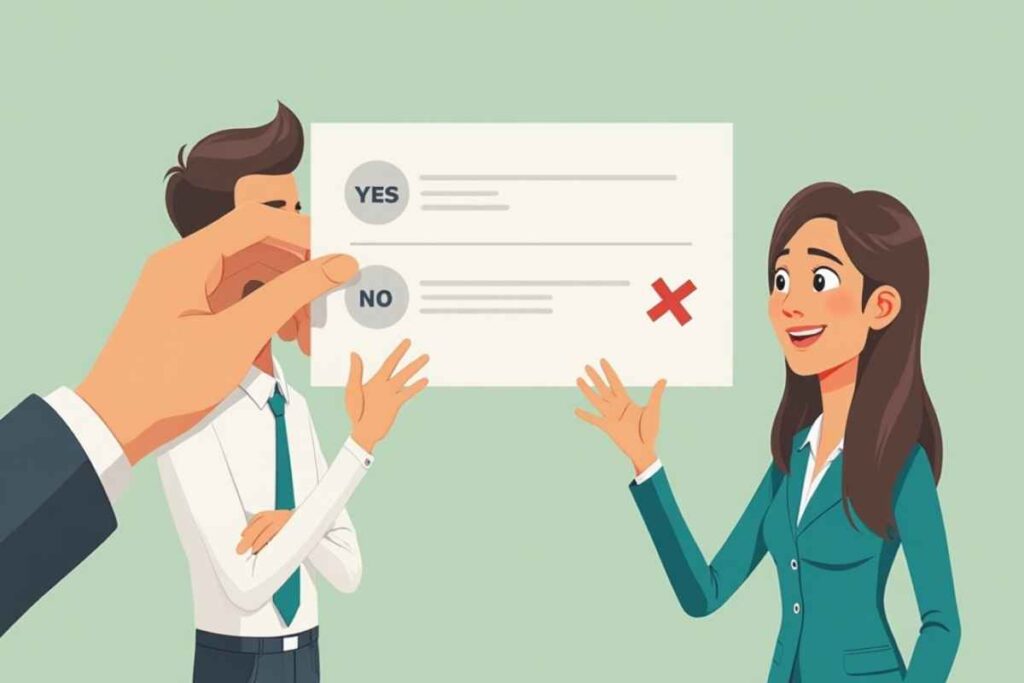In 2025 the rules and laws for Réglementation Marketing Digital are changing a lot and becoming much stricter. Especially in Europe important new regulations like the General Data Protection Regulation GDPR and the ePrivacy Regulation now tell companies exactly.
Whether you work in online marketing managing email campaigns handling social media platforms or optimizing websites through search engine optimization SEO it is absolutely essential to carefully understand and strictly follow these new rules and regulations.
At the same time you also need to be completely honest and transparent with your audience by clearly communicating how their data is used all while making sure your marketing efforts remain highly effective engaging and deliver measurable positive results for your brand.
Table of Contents
ToggleWhat Are Réglementation Marketing Digital and ePrivacy?

RMD:
This law protects personal data. It says:
- You must ask people clearly if you can use their data.
- People can ask you to delete their data.
- People can see and take their data if they want.
- You must keep data safe and secret.
ePrivacy:
This is a new law about cookies and online tracking. It says:
- You can’t use cookies from other companies without asking people first
- There are new rules about emails and phone apps too.
Why Following the Rules Helps Your Business
Some people think laws are annoying but they actually help:
- When you protect data people trust you more.
- Respecting privacy makes the website easier and safer to use.
- You avoid big fines and keep your good name.
Tools You Should Use
To comply with new Réglementation Marketing Digital regulations, it’s important to use tools that respect user privacy. One effective method is implementing consent cards that give users a simple and clear choice yes or no about how their data is collected and used.
These consent requests should be easy to understand so users can make informed decisions. Additionally Réglementation Marketing Digital automation software should be chosen carefully to ensure it respects users choices and keeps their data safe and secure.
Since cookies are becoming harder to use due to stricter rules, Réglementation Marketing Digital should also explore alternative tracking methods such as server side tracking or using anonymized data that does not reveal individual identities. These tools help balance privacy with effective marketing.
Honest Réglementation Marketing Digital Is Important

Always ask people clearly for their permission before using their data never use tricks or confusing language to get it. Avoid sneaky methods to collect information and only gather the data that you truly need for your marketing.
Also be ready to help people quickly if they want to see what data you have about them or if they ask you to delete it. Being honest and respectful builds trust and keeps your marketing ethical.
Trends for 2025 Green and Fair Réglementation Marketing Digital
Create marketing campaigns that are kind to the planet by reducing waste and energy use. Use pictures and words that include and respect all kinds of people making sure everyone feels welcome.
Also work with honest and trustworthy influencers on social media who consistently follow the rules and promote your brand sincerely and authentically.
What Happens If You Don’t Follow the Rules?

If you don’t follow the rules you might have to pay very large fines sometimes up to 20 million euros. People can also take legal action against you and take you to court.
On top of that your company’s name could be made public in the news in a negative way, which can harm your reputation and trust with customers.
Best Tips to Follow the Rules
| Area | What To Do |
| Cookies & Trackers | Use only first party cookies no third party |
| Consent Management | Use simple and clear consent forms |
| Email Marketing | Follow anti spam laws |
| Data Storage | Protect data by design and default |
| Campaign Analytics | Use anonymous data and legal tools |
| Keep Legal Updated | Check CNIL AFCPD and EDPS news often |
Final Thoughts
Réglementation Marketing Digital rules in 2025 are much stricter but help build better trust and stronger relationships between brands and customers. Following GDPR and ePrivacy laws carefully ensures your marketing stays fully legal and your users feel safe and protected.
Using clear consent cards and honest marketing practices makes data collection fair and transparent Adapting to new tracking methods without cookies will keep your campaigns effective and compliant.
Inclusive and eco friendly marketing trends show that caring about people and the planet matters.Staying updated with legal news and tools is key to navigating the changing digital marketing landscape.
FAQs
What is the main difference between GDPR and ePrivacy?
GDPR protects personal data in general while ePrivacy specifically focuses on electronic communication like cookies emails and tracking technologies. Both must be strictly followed for full legal compliance.
How do consent cards help with digital marketing compliance?
Consent cards give users a simple yes or no choice for data use making permission clear transparent and easy to understand which quickly builds user trust.
Can I still use cookies for tracking in 2025?
You can use cookies only if they are first party or if users give explicit and informed consent third party cookies without clear consent are strictly banned under new privacy laws.
What should I do if a user wants to see or delete their data?
You must respond quickly and efficiently to user requests by showing them their data or deleting it promptly if they ask fully respecting their rights under GDPR regulations.
Why is honest marketing important alongside legal compliance?
Honest marketing avoids tricks or forced consent which protects your brand reputation supports ethical business practices, and creates loyal trusting long term customers.
What are some alternatives to cookie based tracking?
Server side tracking and anonymized data analysis allow marketers to understand audiences more deeply without violating strict modern digital privacy rules.
What risks do brands face if they ignore digital marketing regulations?
Ignoring rules can lead to fines up to 20 million euros lawsuits lost customer trust and public damage to your company’s reputation.
How can marketers stay updated with changing digital marketing laws?
Regularly check official sources like CNIL AFCPD and EDPS websites to stay consistently informed about legal updates and evolving best practices.








